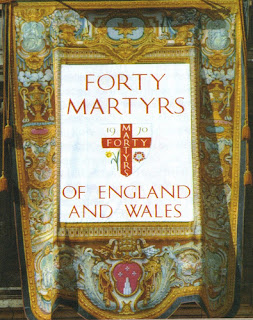SAINTS FOR JULY 30
SAINTS FOR JULY 30
Bl. Thomas Abel, 1540 A.D. English martyr. A graduate of Oxford University, Thomas served as chaplain to Queen Catharine of Aragon, proving intensely loyal to her cause during the ordeal of the divorce proceedings against her by King Henry VIII of England (r. 1509-1547). Arrested by English authorities for denying the spiritual supremacy of the king, he was incarcerated in the Tower of London for six years, finally receiving execution at Smithfield. He was beatified in 1886.
Bl. Edward Powell, 1504 A.D. English martyr, a councilor to Queen Catherine of Aragon, wife of King Henry VIII. A Welshman, Edward was a canon of Salisbury, England, and a fellow of Odd, noted for treatises opposing Martin Luther. He served Queen Catherine of Aragon and opposed the spiritual supremacy of Henry VIII. For this he spent six years in prison before being hanged, drawn, and quartered at Smithfield, London. He was beatified in 1886.
Bl. Richard Featherstone, 1540 A.D. English martyr. Richard served as a chaplain to Queen Catherine of Aragon and tutor to the princess Mary I. In the crisis which attended the king’s efforts to secure divorce from his wife, Richard spoke openly in her defense and was arrested for treason and executed at Tyburn.
STS. ABDON AND SENNEN, MARTYRS
St. Julitta, Roman Catholic Martyred woman of Caesarea in Cappadocia, in modem Turkey. She lost all her estates in a court case. Her opponent suffered a decision against his claims and denounced Julitta as a Christian, thus gaining the entire land in the dispute. She was burned at the stake. Feastday July 30
ST. PETER CHRYSOLOGUS, BISHOP OF RAVENNA AND DOCTOR OF THE CHURCH-Peter Chrysologus was Bishop of Ravenna in the 5th century, when the Italian city was the capital of the western Roman empire. He is famous for his homilies, and his preaching earned him the epithet “golden-worded” (Chrysologus). St Peter was declared a Doctor of the Church in 1729. July 30
St. Tatwine, 734 A.D. Archbishop of Canterbury from 731. Probably from Mercia, England, he became a monk at Bredon, and eventually was named archbishop of Canterbury in succession to Brithwald. Respected by St. Bede, he was the author of several works, including a grammar and riddles.
St. Ermengytha, 680 A.D. Benedictine nun, a daughter or sister of St. Ermenberga. She lived in Minster, on Thanet Isle, England, at a monastery ruled by Ermenberga.


Comments
Post a Comment